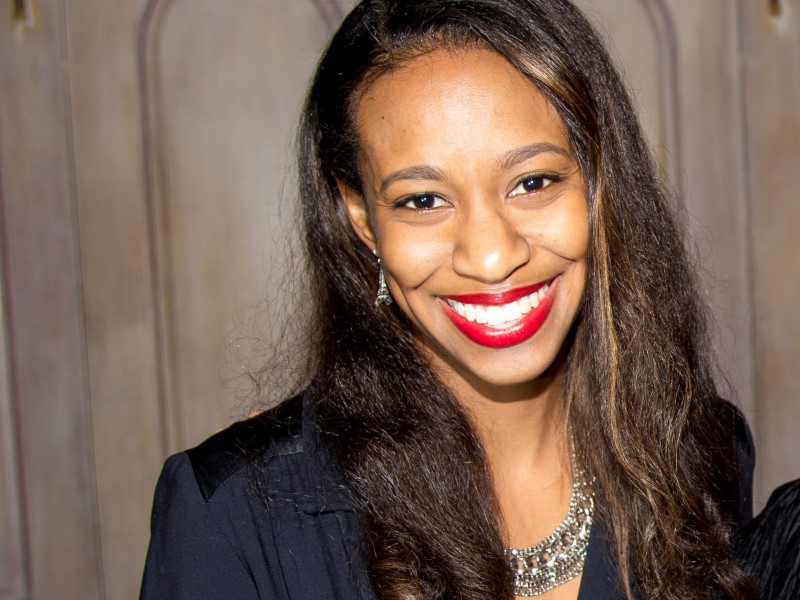Alumni Profile: Abigail Henry (ComCult MA '15)
It’s important to stand your ground, and don’t let people dissuade you from researching what you want because maybe it’s a little marginal.
Current Work
I run the special programs and outreach arm of the National Library of Jamaica. We administrate ongoing programs like the distinguished lecture series and the publishing initiative, and we recently wrapped up a week long outreach series called All Flowers Are Roses (opens in new window) , a poetry and self-defense series that worked with children in state care, or places of safety as we call them in Jamaica. Our flagship outreach program is the Poet Laureate of Jamaica (opens in new window) , the program was reestablished a couple years ago and encourages appreciation of poetry, art, and writing. The current Poet Laureate of Jamaica is Lorna Goodison, a well-regarded figure in world literature, and we are very proud to have her. As director, I also do a lot of grant proposal writing and contribute to the public relations thrust for the National Library.
Reflections on ComCult
The first thing that attracted me to ComCult was its interdisciplinary structure. I wanted to have the freedom to study what I wanted to and ComCult held to that promise. This can be both a strength and a weakness—everyone is studying such diverse things that it can sometimes feel hard to sit down and have an argument about your topic, but at the same time, the theoretical underpinnings of the program connect you all. I was exposed to so many things that I might not have had much of an interest in, and that interdisciplinary aspect has been very helpful to me in my professional work. Jamaica recently ratified the observance of the UN’s World Poetry Day and as the person who led that project, I was writing submissions to cabinet and writing drafts. Although those things were not necessarily my focus, having that exposure to politics and policy was very helpful. There is a method to the madness, and ComCult undergirds a very fulsome understanding of all aspects of cultural studies and communication.
During my time in the program, I was part of the planning team for Intersections/Cross-Sections, the graduate conference organized by the students in ComCult, and that was a really great experience. It gave me a chance to step outside of the classroom and be involved in event planning and conference management, both of which I do a lot of now. I also took a course with Dr. Izabella Pruska-Oldenhof that required us to create a digital project. I took on coding and programming, and created a digital platform for mapping cultural heritage resources. It ended up being a really great project that allowed me to jump onto the back end of technology a bit outside of my comfort zone. Lastly, my thesis defense was probably the big take-away from my degree. It was nerve wracking but it was also very fulfilling—it’s your first real trial-by-fire as an academic, and my advice to students, as scary as it is, is to soak it in. No one in the room knows your research better than you, you have something to contribute.
For international students, it can be a bit of an alienating experience to come to another country but it’s important to stand your ground, and don’t let people dissuade you from researching what you want because maybe it’s a little marginal. Read widely, know what is going on in the cultural sector, see your niche and see where you will be most useful. The thing about the cultural industries is recognizing that you have ideas to contribute and value to add.
Recommended Creative Content
Life and Debt (2003) (opens in new window) is a film I often recommend to people wanting to understand the social realities of developing nations in the global age. It is a documentary created by Stephanie Black, a Jamaican filmmaker, which takes a very frank look at the ways in which globalization, foreign economic agendas, and the weight of colonial history impact the daily lives of Jamaicans today. The film’s narration also incorporates the work of Jamaica Kincaid - a writer whose work I find to be lucid, nuanced, and searing.
